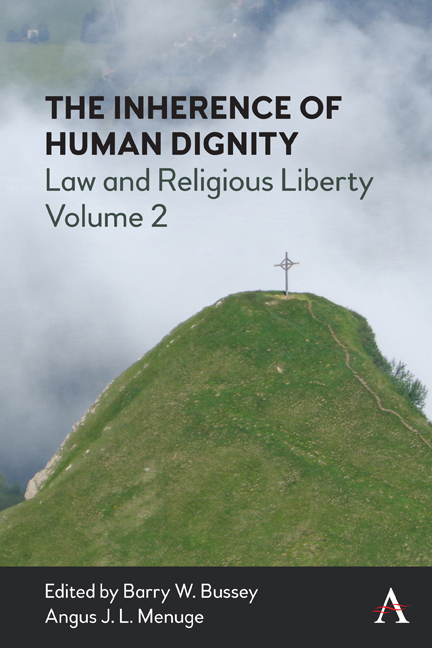Chapter Ten - Balancing Competing Dignity Claims: Insights from the United Kingdom and Italy
Published online by Cambridge University Press: 24 February 2022
Summary
This chapter discusses balancing the prerogative to manifest identity-based beliefs such as the support for same-sex marriage and the prerogative to refuse the transmission of such a message by a service provider. We argue that both prerogatives are manifestations of human dignity that have normative and pragmatic implications that should be assessed within a deliberative arena such a parliament and regional assemblies. The argument is supported by a comparative analysis of recent UK jurisprudence and the evaluations of the statutory measures that inform Italian and European law.
The first manifestation of human dignity in the case is a prerogative granted to a historically discriminated-against identity to access publicly offered services. The second manifestation of human dignity is the prerogative of individuals who are managing a business to refuse to provide a service on the basis that what is asked of them is perceived as contravening their religious beliefs. In this chapter we provide a review of the Northern Irish, British and Italian systems of rules that inform the accommodation of this dilemma. These three systems are, albeit differently, committed to protecting human dignity and they comply, again distinctively, with the set of international obligations that are derived from membership in the Council of Europe and the European Union.
The analysis shows that while there are strong indications that international jurisdictions are dynamically changing the balance between the prerogative to manifest and the prerogative to refuse identity-based claims, the process of accommodating competing manifestations is still better left to the national and regional deliberative arenas. This chapter is divided into three sections. The first part discusses the process of balancing competing dignity claims. The second analyses the Lee v. Ashers Baking Company case. The third section discusses the statutory measures that inform Italian law on cases in which there might be an allegation of discrimination. The comparison shows that even in a legal system such as the Italian one where there is generally entrenched constitutional protection against discrimination, it is not guaranteed that the courts will consider the refusal to reproduce identity-based beliefs as discriminatory without a specific statutory intervention by the Italian Parliament.
- Type
- Chapter
- Information
- The Inherence of Human DignityLaw and Religious Liberty, Volume 2, pp. 165 - 184Publisher: Anthem PressPrint publication year: 2021



